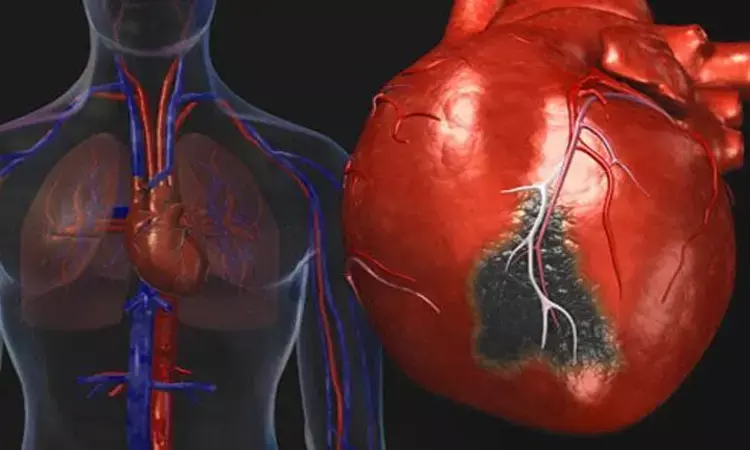- Home
- Medical news & Guidelines
- Anesthesiology
- Cardiology and CTVS
- Critical Care
- Dentistry
- Dermatology
- Diabetes and Endocrinology
- ENT
- Gastroenterology
- Medicine
- Nephrology
- Neurology
- Obstretics-Gynaecology
- Oncology
- Ophthalmology
- Orthopaedics
- Pediatrics-Neonatology
- Psychiatry
- Pulmonology
- Radiology
- Surgery
- Urology
- Laboratory Medicine
- Diet
- Nursing
- Paramedical
- Physiotherapy
- Health news
- Fact Check
- Bone Health Fact Check
- Brain Health Fact Check
- Cancer Related Fact Check
- Child Care Fact Check
- Dental and oral health fact check
- Diabetes and metabolic health fact check
- Diet and Nutrition Fact Check
- Eye and ENT Care Fact Check
- Fitness fact check
- Gut health fact check
- Heart health fact check
- Kidney health fact check
- Medical education fact check
- Men's health fact check
- Respiratory fact check
- Skin and hair care fact check
- Vaccine and Immunization fact check
- Women's health fact check
- AYUSH
- State News
- Andaman and Nicobar Islands
- Andhra Pradesh
- Arunachal Pradesh
- Assam
- Bihar
- Chandigarh
- Chattisgarh
- Dadra and Nagar Haveli
- Daman and Diu
- Delhi
- Goa
- Gujarat
- Haryana
- Himachal Pradesh
- Jammu & Kashmir
- Jharkhand
- Karnataka
- Kerala
- Ladakh
- Lakshadweep
- Madhya Pradesh
- Maharashtra
- Manipur
- Meghalaya
- Mizoram
- Nagaland
- Odisha
- Puducherry
- Punjab
- Rajasthan
- Sikkim
- Tamil Nadu
- Telangana
- Tripura
- Uttar Pradesh
- Uttrakhand
- West Bengal
- Medical Education
- Industry
Intraoperative blood sugar control critical for reducing infections in diabetics undergoing CABG: Study

Jordan: A recent study has suggested that post coronary artery bypass graft (CABG) surgery nurses should consider the glycemic control and glycemic stability approach to minimize adverse surgical outcomes. Also, the researchers note that healthcare providers should carefully consider diabetes patients who have undergone bypass surgery and are at risk of developing postoperative surgical site infections (SSIs). The study results were published in the journal Heliyon on December 01, 2021.
Poor blood sugar control in diabetes patients undergoing CABG surgery has been related to infectious complications, specifically SSIs that are linked with adverse health surgical outcomes.
Issa M. Hweidi, Faculty of Nursing, Adult Health Nursing Department, Jordan University of Science and Technology, Irbid, Jordan, and colleagues aimed to examine the effect of two different intraoperative glycemic control protocols, tight and conventional, on thirty-day postoperative SSI rates in diabetes patients undergoing CABG surgery.
For this purpose, the researchers employed a randomized controlled trial (RCT) design, with a convenience sample of 144 adult patients who were to undergo CABG surgery. The study was set up in a main referral heart institute in Amman, Jordan.
The participants were randomly assigned to either the tight glycemic control group (n = 72), or the conventional glycemic control group (n = 72). Participants in the tight glycemic control group were maintained at an intraoperative blood glucose level of 110–149 mg/dl via continuous intravenous insulin infusion. In the conventional glycemic control group, they were maintained at an intraoperative blood glucose level of 150–180 mg/dl via continuous intravenous insulin infusion. Independent blinded physicians evaluated and compared postoperative SSIs among both groups.
Key findings include:
- There was a small portion of the study participants in the tight glycemic control group had SSIs compared to the conventional glycemic control group.
- As for the tight group, the highest percentage among the infection types was DSWI followed by SHWI and DHWI among the study participants.
- No SSWI was reported among participants within this group of glycemic control intervention.
- There was no statistically significant difference between the two glycemic control interventions among study groups.
- Intraoperative tight glycemic control did not reduce thirty-day postoperative SSIs among the participants.
The principal findings were that there was no statistically significant difference between the two treatment groups in terms of SSI rates and their potential adverse surgical outcomes.
"Our results show that the use of tight glycemic control during the intraoperative period can be safely achieved through the judicious implementation of the protocol," the researchers wrote. "It is very important to identify patients who were more likely to develop postoperative SSIs."
"Therefore, when providing care for at-risk patients, nurses should consider the glycemic stability and glycemic control approach to minimize the occurrence of adverse surgical outcomes post-CABG surgery, more specifically SSIs," they concluded.
Reference:
The study titled, "The effect of intraoperative glycemic control on surgical site infections among diabetic patients undergoing coronary artery bypass graft (CABG) surgery," was published in the journal Heliyon.
Dr Kamal Kant Kohli-MBBS, DTCD- a chest specialist with more than 30 years of practice and a flair for writing clinical articles, Dr Kamal Kant Kohli joined Medical Dialogues as a Chief Editor of Medical News. Besides writing articles, as an editor, he proofreads and verifies all the medical content published on Medical Dialogues including those coming from journals, studies,medical conferences,guidelines etc. Email: drkohli@medicaldialogues.in. Contact no. 011-43720751


